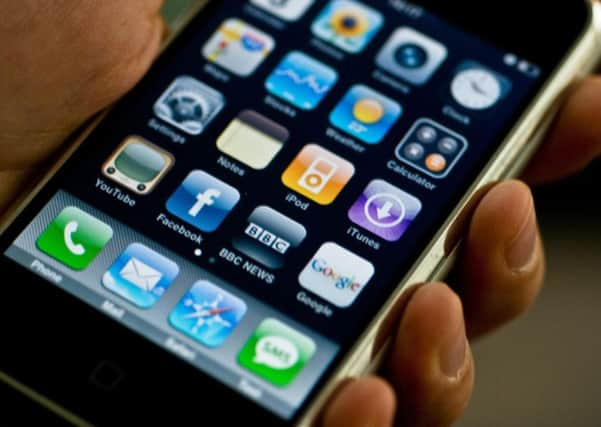Greg Wright: The fine line between '˜cold calling' and '˜nuisance calling' must be upheld - here's why


After enduring months of misery caused by a train service that displayed a curious reluctance to run on time, the festive season seemed to offer a respite from the cares of the world.
And then the phone rang.
It was a voice, apparently from overseas, on behalf of our broadband provider. They were keen to add new bangs and whistles to our existing service, even though we had made it clear we didn’t want to buy anything else from them.
Advertisement
Hide AdAdvertisement
Hide AdThis was not the first time we had told them this. In fact, in common with many customers, we had been enraged by the follow up calls that have disrupted our private lives. We felt violated.
“There’s a fine line between ‘cold calling’ and ‘nuisance calling’,” I told the provider. “Please don’t cross it. We’ve made it clear we don’t wish to speak to you.”
What followed was an exchange that seemed to belong to a parallel universe. You can only stop the ordeal by following a convoluted process that is clouded by corporate gobbledygook. A simple verbal instruction seems to carry no weight.
“We’re an existing customer but don’t want to buy anything else from you,” I said. “My wife has repeatedly asked you to stop calling us.”
Advertisement
Hide AdAdvertisement
Hide AdAfter a fruitless and fraught discussion, I was forced to threaten them with a complaint to the regulators. The phone fell silent. The company seems to have agreed a Christmas armistice, which will hopefully become permanent.
In the digital age, the sales call is like rolling thunder, which bludgeons old and young, strong and weak in the belief that it will inevitably lead to submission. The elderly and vulnerable are left feeling terrified. How many customers simply cave in and buy things they can’t afford and don’t need, just to stop the ordeal?
To quote Chris Shaw, the respected Yorkshire-based marketing consultant: “It’s almost as though the people designing these system actively want to steamroller vulnerable customers into buying their services.”
One of my elderly relatives has been plagued by these calls, using data which appears to have been mined from some obscure source. When the phone rings, she is often braced for bad news. Unwanted calls add to a sense of agitation.
Advertisement
Hide AdAdvertisement
Hide AdI remember an elderly reader of The Yorkshire Post who told me about the panic she felt whenever the phone rang. And when, heart pounding, she picked up the phone, she found she was talking to just another “fake person”.
There are regulations that should stop this from happening, including the EU’s General Data Protection Regulation (GDPR), which places strict rules on how personal data is handled by businesses and organisations. The UK’s own data watchdog has promised that big fines could be imposed on companies that persistently, deliberately or negligently flout the regulations.
The new regulations are supposed to give users great control over their data, including the ability to withdraw consent for it to be used by any organisation.
According to The Privacy Trust, an organisation dedicated to the promotion of online privacy, a subject’s consent to processing of their personal data under GDPR “must be as easy to withdraw as to give consent”. So under GDPR, simply telling a pushy salesman that you don’t want to speak to them or receive further calls should be enough to send them packing. For good.
Advertisement
Hide AdAdvertisement
Hide AdBut my own experience has proved that this is not always the case. I’m quite capable of standing up for myself and giving the companies behind these aggressive tactics a hard time.
But many people will be perplexed and disturbed by repeated advances from companies who are using data to hound consumers.
Apple chief executive Tim Cook has raised concerns about the misuse of personal data, which he said was being “weaponised against us with military efficiency”.
“We shouldn’t sugar-coat the consequences,” the BBC quoted him as saying. “This is surveillance.”
Advertisement
Hide AdAdvertisement
Hide AdIn a speech to the International Conference of Data Protection and Privacy Commissioners, Mr Cook said that billions of dollars were traded on the basis of people’s “likes and dislikes”, “wishes and fears” or “hopes and dreams”.
However there seems to be no hiding place from firms who are determined to use data.
Many firms appear to regard the necessary constraints of GDPR as a box-ticking exercise. That is simply not good enough. There will be more tales of misery from victims unless regulators get a grip, and fine – or even jail – those responsible.
Greg Wright is Deputy Business Editor of The Yorkshire Post.